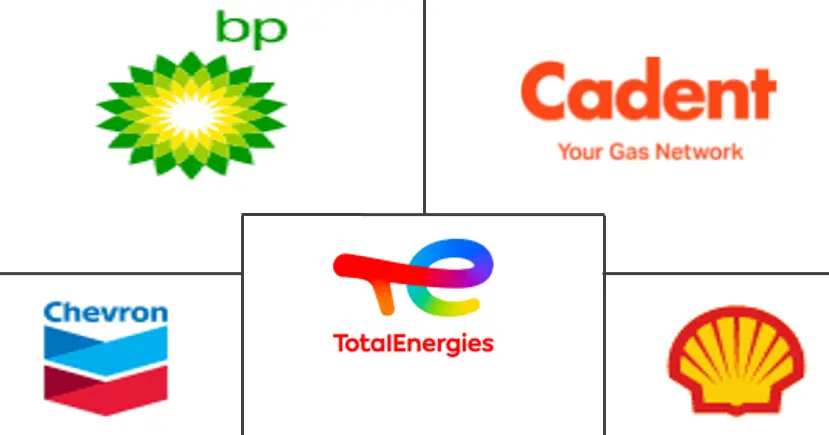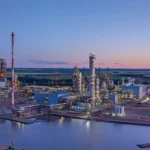UK Oil and Gas Companies Navigate Declining Production and Energy Transition in 2025

UK Oil and Gas Companies Navigate Declining Production and Energy Transition in 2025
September 15, 2025 – London, UK
The UK’s oil and gas companies are facing a pivotal year in 2025, grappling with declining North Sea production, stringent government policies, and the accelerating shift toward sustainable energy. Major players like BP, Shell, and Harbour Energy are adapting through cost-cutting, technological innovation, and diversification into low-carbon solutions. Insights from recent industry reports reveal how these firms are positioning themselves in a challenging market environment marked by global oversupply and regional energy demands.
Production Challenges and Capital Discipline
UK oil and gas companies are contending with a steady decline in North Sea output, projected to fall 5% in 2025 to 1.2 million barrels of oil equivalent per day (boe/d), according to the North Sea Transition Authority. Aging fields, such as BP’s Forties and Shell’s Brent, are seeing natural depletion, with limited new discoveries due to high exploration costs and regulatory restrictions. To maintain financial resilience, companies are prioritizing capital discipline, with BP and Shell reducing capital expenditures by 10% in 2025 compared to 2024. This follows a strong 2024, where the sector distributed $15 billion in dividends and share buybacks, reflecting a focus on shareholder returns amid market volatility.
Technological Innovation Drives Efficiency
Leading UK firms are leveraging technology to optimize operations and extend the life of mature fields. BP has implemented AI-driven seismic imaging at its Clair field, boosting recovery rates by 7% and reducing drilling costs by 12%. Similarly, Harbour Energy’s adoption of digital twins across its Viking and Beryl assets has improved maintenance efficiency, cutting downtime by 15%. These advancements are critical as companies face a projected global oil surplus of 1.7 million barrels per day (b/d) by early 2026, which could push Brent crude prices down to $50 per barrel from $68 in August 2025.
Energy Transition and Low-Carbon Investments
The UK’s net-zero by 2050 target is reshaping corporate strategies, with oil and gas giants investing heavily in low-carbon technologies. Shell is allocating 25% of its 2025 budget to renewables and carbon capture, utilization, and storage (CCUS), with its Quest CCUS facility in Scotland capturing 1.2 million metric tons of CO2 annually. BP’s partnership in the Net Zero Teesside project aims to sequester 4 million metric tons of CO2 per year by 2028. However, a survey by Deloitte indicates that only 40% of UK oil and gas executives are confident in scaling CCUS due to high costs and regulatory uncertainties.
LNG and Import Dependency
As domestic production wanes, UK companies are increasingly focused on LNG imports to meet energy demands. Shell, a major stakeholder in the Grain LNG terminal, is facilitating a 15% year-on-year increase in LNG imports in 2025, driven by Europe’s pivot away from Russian gas ahead of the EU’s March 2025 re-export ban. The terminal, handling 13.5 million metric tons annually, is critical for energy security. However, global LNG oversupply risks, with a projected glut starting in 2026, could lower prices and impact profitability for UK importers.
Mergers, Acquisitions, and Workforce Shifts
Mergers and acquisitions (M&A) are a key trend, with 60% of UK oil and gas firms planning deals in 2025 to enhance efficiency and access low-carbon technologies. Harbour Energy’s recent acquisition of Wintershall Dea’s North Sea assets for $1.5 billion strengthens its portfolio but reflects broader consolidation pressures. Layoffs continue, with 5,000 jobs cut across the sector in 2024–2025, though companies like BP are retraining 2,000 workers for roles in offshore wind and hydrogen projects, aligning with government-backed initiatives targeting 10,000 retrained workers by 2027.
Geopolitical and Policy Headwinds
The UK’s oil and gas sector is navigating complex geopolitical and policy challenges. The Labour government’s 38% Energy Profits Levy and ban on new North Sea licenses have sparked concerns about investment deterrence, with the industry estimating a £20 billion loss in potential projects by 2030. Globally, tensions in the Strait of Hormuz, which handles 21% of petroleum liquids, pose risks to UK energy imports. Additionally, U.S. tariffs and potential disruptions from Ukrainian attacks on Russian refineries are contributing to market volatility, affecting Brent crude price forecasts.
Petrochemical Sector Under Pressure
The UK’s petrochemical industry, reliant on oil and gas feedstocks, faces competitive pressures from low-cost Middle Eastern producers. Ineos, a major player at Grangemouth, has invested in AI-driven process optimization, achieving a 10% cost reduction in 2024. However, high energy costs and global supply chain disruptions threaten profitability, with petrochemicals expected to drive 18–20% of global oil demand by 2040. Government support for decarbonization, including £20 billion for CCUS, is critical for the sector’s long-term viability.
Outlook for 2025
UK oil and gas companies are at a turning point, balancing declining North Sea production with investments in technology and low-carbon solutions. As global oil markets face a potential surplus and geopolitical risks, firms like BP, Shell, and Harbour Energy are focusing on efficiency, diversification, and energy transition alignment. Their ability to adapt to these trends will shape the UK’s energy future and its role in the global market through 2030.
- Oil Industry







